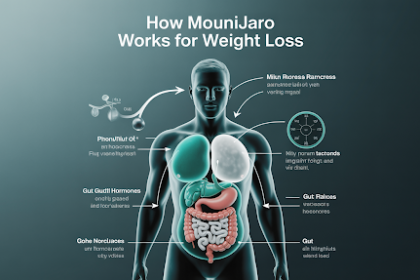When you are preparing for retirement, one of the biggest questions you will face is how should you be handling your retirement assets?
In a simpler world, you’d have just a couple of options. For decades, it was simple – pension and Social Security. No decisions necessary, you just get monthly payments.
Now, with 401(k)s, HSAs, IRAs, Roth 401(k)s, etc. it can get a little confusing as to the “correct drawdown strategy.”
Fortunately, there is an answer. It’s not a simple one but a solvable one.
1. How Much Will You Spend Each Year?
Before you can know the correct drawdown strategy, you need to know how much you’ll be spending each year.
If you’re spending $60,000 a year, you won’t need a drawdown strategy that gets you $120,000 a year. Or even $100,000 a year. Maybe you want one that gives you $70,000 so you can be a bit more spendy, but it’s still within range.
If you’ve been diligently budgeting, you have a good starting point. You can review how much you’ve spent in the last few years and adjust it based on what you expect to be doing in your retirement years.
If you haven’t, you will have to manually review your credit card and bank statements.
If, for example, you’ve spent $10,000 a month for the last two years, it’s not unreasonable to expect you to spend that same amount as your base.
Then adjust it based on your future plans. If you retired from a full-time job, and now have vastly more free time, you may want to adjust that budget based. Will you need more to pay for additional hobbies? Will you need slightly less because of reduced commuting costs? Will you have paid off a mortgage in that time period, thus freeing up cash flow? Do you want to take an extra trip or two each year? Will you visit family or friends?
(I recommend watching this very popular TEDx talk on the four phases of retirement)
Finally, what extra “buffer” do you want to add to your budget for all the miscellaneous spending you might want to do.
Even after answering those questions, this is just a starting point but a necessary one. In most cases, expect your spending to go up in retirement and you can always adjust your drawdown based on what you actually spend.
💊 Another consideration is healthcare. If you only looked at your spending, you may have overlooked what you might need to spend on healthcare and long term care as you age. Some of this is covered by Medicare but not all of it. Fidelity estimates that a single person age 65 in 2023 may need $157,500 (after tax) saved for health care expenses. The average retired couple may need $315,000 saved. (source)
1a. Does It Fit the 4% Rule?
The 4% rule is a general rule of thumb that states your annual spending needs to be 4% or less than your total nest egg. If you keep spending below 4%, your nest egg should be able to outlast you.
It’s a general rule of thumb and when you plug that simple idea into FICalc, we see there is a 96.7% chance of success (you don’t run out of money). FICalc is a fun tool that runs through various scenarios using historical data.
The 4% rule isn’t set in stone (as you see by the 96.7% success rate) and people have argued that it’s both too aggressive and too conservative. Either way, I think 4% is a useful bar.
If you don’t have enough, you may need to temper your expectations for what retirement will look like or you need to work longer to build up the nest egg even more. It’s a simple math problem, you will want to take your expected spending, multiply by 25, and make sure your retirement assets are bigger than that number.
2. In What Order Should I Use My Retirement Accounts?
First, the basic strategy is this:
- Taxable accounts
- Tax-deferred accounts
- Tax-free accounts
The reasoning for this order is tax rates. We expect that you withdraw from taxable accounts first because that’s where you’re most likely to have long term capital gains, taxed at favorable long term capital gains rates. You are also likely to have qualified dividends (again, taxed at long term rates) in those accounts too. Both of those tax rates are lower than ordinary income tax rates.
When you withdraw from tax-deferred accounts, the proceeds are typically taxed as ordinary income. If you’re able to keep your distributions below the standard deduction (or your itemized deductions), your tax liability could be minimal.
Finally, tax-free accounts are last because the gains are tax-free. We want those growing for as long as possible. (tax-free accounts like Roth IRAs, and Roth 401(k) and 403(b) plans starting in 2024, do not have required minimum distributions)
These three sources are not your only income sources.
You will likely be getting Social Security and perhaps your former employer offered a pension. You may have purchased an annuity or took a part-time job. The above order is for those income needs above what your other sources can provide.
💵 The goal here is to be as tax efficient as possible while meeting your financial needs. Your situation will determine where you withdraw funds and these are just general guidelines because your tax rates will be determined by your mix of income sources.
If you have very little income, you may consider withdrawing from your tax-deferred accounts early (or convert them to a Roth, more on that below) because that income will be offset by your deductions and thus taxed at very little (or nothing).
If you have a lot of income, you may want to use funds in a Roth because it won’t increase the taxation of your other sources. It’s a tricky game to play, which is why it may make sense to ask a professional for help.
Speaking of those sources, the next big question is when should you claim Social Security?
2a. When to Convert to Roth
In those years in which you’re no longer working and leaning more heavily on taxable accounts, your income is likely to be quite low. This is when it may make sense to convert some of your tax-deferred accounts into Roth versions that are tax-free. (or you can simply withdraw it and use it)
When you convert them, you will have to recognize them as income and pay income taxes. Since you’re not earning an income, you will be in a lower tax bracket. This makes the conversions less expensive.
You’ll want to talk to a professional who can look at your situation and financial plan to give you direction on how to best accomplish this (how much and when). The basic idea is that if you have a lot in tax-deferred accounts (more than you’ll need in that time frame), you’ll want to shift some of that to the tax free bucket so it can grow faster for when you need it later.
This is one of the hardest decisions to make because we cannot see the future. We know that we can maximize our monthly Social Security check when accrued delayed retirement credits by waiting until age 70.
But this may not fit your specific needs, so taking it at full retirement age or earlier is not necessarily a mistake either. You will need to decide what’s best for you(and your spouse if applicable) and sometimes it requires you to work with a financial professional to sort things out. If not a real life professional, consider using a guided tool that can walk you through all the questions (we recommend checking out NewRetirement).
Your choice is to take benefits when you’re immediately eligible, wait until Full Retirement Age, or wait until 70. There are a lot of factors, from your health to healthcare, and you’ll want to review them all before making a decision.
One big consideration is the amount of benefits you receive depending on the age at which you start.
This is my personalized benefits chart, from my Social Security Statement (I’m in my 40s, so decades from “retirement age”):

If I take it at 62, I get $2,519 per month. If I wait until 70, I can get $4,479 – 1.77 times more per month.
But if I take it at 62, I will have gotten 92 extra payments (8 years times 12 months). The crossover point (of when your total collection from SS is equal for both secnarios) isn’t until the 19th year (when I’d be 79).
Food for thought on waiting vs. not waiting and your specific situation.
If all of this seems a bit complicated, unfortunately can be. Another tool that might be helpful is Open Social Security. It’s tool authored by Mike Piper, a CPA from St. Louis, MO and author of Oblivious Investor (and a blogging friend of mine). He knows his stuff and his tool is really good for helping you navigate when to take Social Security benefits.
4. Your Retirement Spending Won’t Be Uniform
Much like your spending today, your retirement spending doesn’t need to be and likely won’t be the same each year. You can have lean years and flush years. You can front load it with a lot of spending and lower it as you age. You can run lean in the beginning, perhaps to support a delay in Social Security benefits, and then ramp it up.
Your retirement plan will also have required minimum distributions. You are required to start withdrawing funds from your 401(k) or IRA starting at age 72 or 73.
When you reviewed your budget and saw a number, that number isn’t set in stone. You can adjust it based on your longer term plan.
And adjusting is important because the biggest risk, especially when your funds are still partially invested in the stock market, is that you run out of money. By reviewing your plan and your budget, you can prepare for the future and draw down assets in the proper order.
5. Reallocate Your Portfolio
As you age, you should be adjusting the allocations in your portfolio to match your needs. A 20-year-old should essentially be 100% in equities but an 80-year-old should not. You can rely on the 120 minus your age rule or something similar, but the trend is the same – invest in less volatile “safer” assets as you age.
This also means that some (large) percentage of your investable assets should be in cash or cash equivalent investments. This can provide a nice buffer for when the market is more volatile, as we saw during the pandemic years (and many many times before that). With a bigger “emergency fund” within your investable assets, you won’t run into one of the biggest risks in retirement – sequence of returns risk.
It’s the risk that you hit a market downturn at the start of your retirement. Sequence of returns risk isn’t something you can do much about, besides having a large buffer so you can ignore it. If the market drops by 10% and you have to withdraw some of your money, those are investable assets that won’t have a chance to come back over the next 5-10 years.
So, when you near retirement, remember to readjust your portfolio so you are less likely to be affected by this risk.
6. Be Flexible
Finally, retirement should be about enjoying the fruits of your labor. What you decide to do when you first retire may change as you get older. You’ll have to revisit your financial plans periodically to ensure they still suit you and your needs.
Hopefully this guide has given you a roadmap as to how to make these drawdown decisions but ultimately life is lived outside of these calculations.
Other Posts You May Enjoy:
Pet Insurance and “Bad” Money Choices
Sometimes the best decision isn’t the “good” money decision and that’s OK. Life is about living in the way you want, not always following what the math says.
The Prime Directive of Personal Finance
There are many “money rules” but if you follow the “Prime Directive,” you won’t need to remember the rest.
Average Retirement Income 2024: What is a Good Monthly Retirement Income in 2024?
Do you know how much you need to earn to fund a good retirement lifestyle? It may be hard to calculate how much you’ll need so we looked at retiree spending based on the surveys of the Bureau of Labor Statistics and the U.S. Census.
12 Ways to Practice Self-Care on a Budget
Self-care is very important, but too many of us don’t take the time we need to rest and recharge. In addition to our busy schedules and many responsibilities, many believe that self-care has to cost a lot of money. Thankfully, self-care can be affordable. Here are 12 ways to practice self-care on a budget.

About Jim Wang
Jim Wang is a forty-something father of four who is a frequent contributor to Forbes and Vanguard’s Blog. He has also been fortunate to have appeared in the New York Times, Baltimore Sun, Entrepreneur, and Marketplace Money.
Jim has a B.S. in Computer Science and Economics from Carnegie Mellon University, an M.S. in Information Technology – Software Engineering from Carnegie Mellon University, as well as a Masters in Business Administration from Johns Hopkins University. His approach to personal finance is that of an engineer, breaking down complex subjects into bite-sized easily understood concepts that you can use in your daily life.
One of his favorite tools (here’s my treasure chest of tools, everything I use) is Empower Personal Dashboard, which enables him to manage his finances in just 15-minutes each month. They also offer financial planning, such as a Retirement Planning Tool that can tell you if you’re on track to retire when you want. It’s free.
Opinions expressed here are the author’s alone, not those of any bank or financial institution. This content has not been reviewed, approved or otherwise endorsed by any of these entities.






